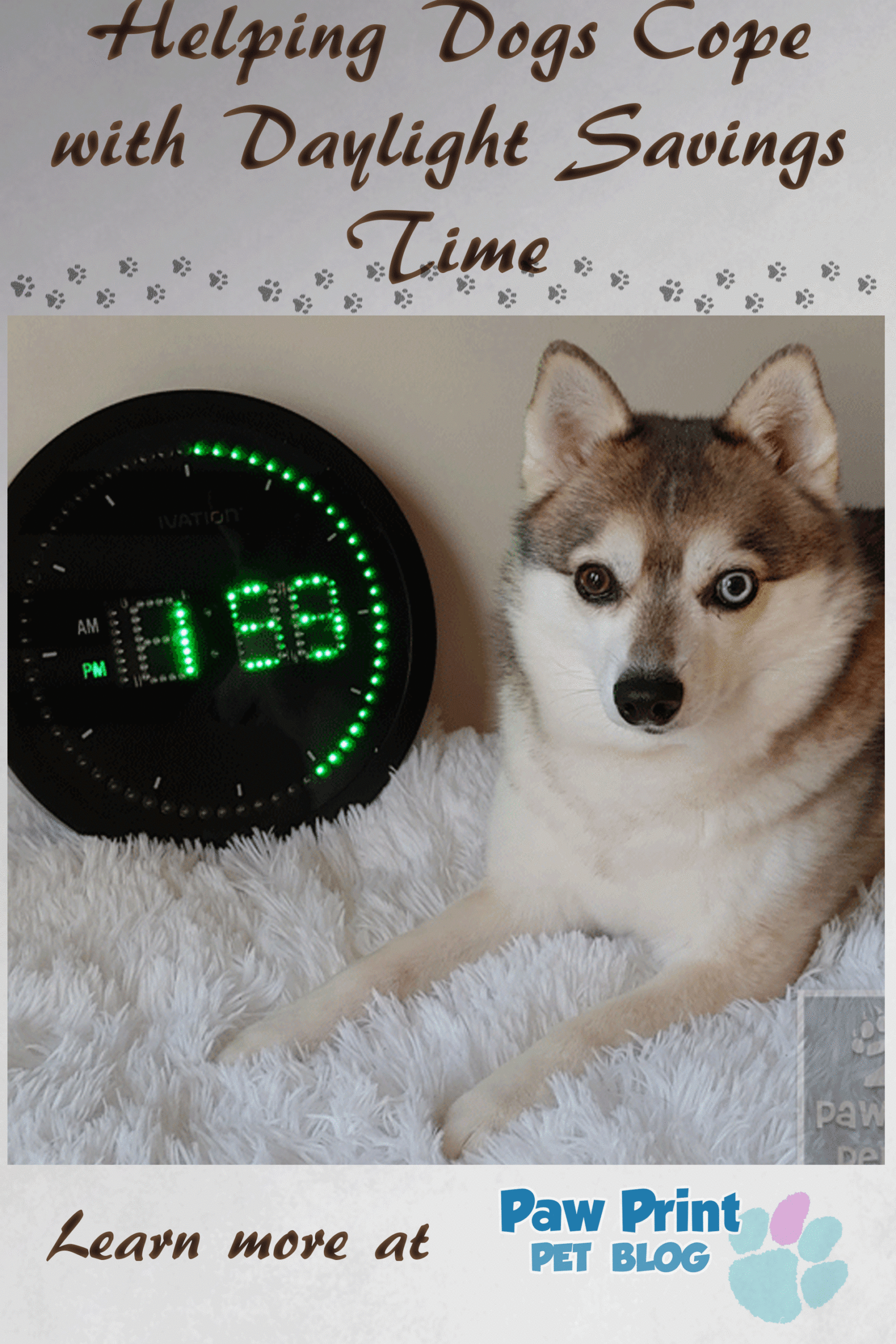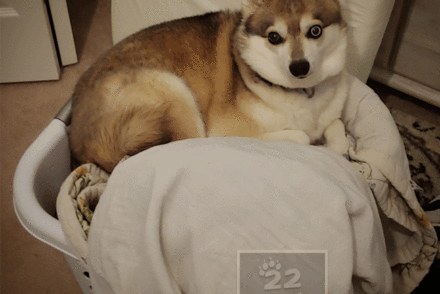Daylight savings time this year begins tomorrow. If it wasn’t for my two dogs, Kitsune the papillon and Fenrir the Alaskan Klee Kai, I don’t think daylight savings time would bother me at all. I work from home and set my own hours, so if I need to sleep in a bit to make up for the lost hour it’s not a big deal! My dogs, however, disagree. Daylight savings time is a very big deal.
Can Dogs Tell Time?
 If I had to go on personal experience alone, I’d say yes, my dogs can tell time! But not in the traditional sense. They, of course, don’t use clocks the way that humans do. But just try and feed Kitsune more than a minute late and see what happens!
If I had to go on personal experience alone, I’d say yes, my dogs can tell time! But not in the traditional sense. They, of course, don’t use clocks the way that humans do. But just try and feed Kitsune more than a minute late and see what happens!
Dogs can be creatures of habit, probably due, in large part, to sharing their lives with us humans. Over time our dogs learn our schedules and can begin to predict what we’re going to do, and when. In most cases, dogs probably use cues from their environment to predict what’s going to happen. If you always get up at sunrise to feed your dog, then over time they’ll associate sunrise with breakfast time. These environmental cues may be so subtle that they may be things we humans would normally overlook. Things like the amount of light coming in through the window, certain smells that may occur at only certain times, slight cues from family members, etc.
These cues aren’t always external either! For example, dogs who are used to always being fed around the same time each day will likely begin to produce stomach acid, and feel hungry, around their scheduled meal time. So time-related cues can be internal.
Animals, dogs included, also have an “inner clock”. Have you ever settled into the habit of waking up at the same time each morning, maybe for school or work? After a while, you don’t need your alarm clock to wake you up at that time anymore. You just wake up at that time on your own each morning. This is especially frustrating on the weekend or vacations when you’d be able to sleep late if you could. Dogs likely experience this phenomenon too. Their inner clocks help cue them in too when daily events should occur, such as sleeping, eating, bathroom breaks, etc.

Thus, Daylight Savings Time With Dogs Can Be Frustrating!
Spring time, when we ‘loose’ an hour, can be especially tough when you have dogs. Dogs don’t understand daylight savings time, so their inner clock is essentially telling them it’s an hour earlier than it actually is. If your dogs are anything like mine, after daylight savings time starts they’ll ask for everything an hour “early” – dinner, walks, bathroom breaks, bed time, etc. This can be frustrating when it starts to disrupt our schedules. Sometimes I’ll want to work until a certain time, for example, but won’t be able to get everything I need to done because Kit and Fen will be downstairs convinced that it’s time for their evening walk.
Helping Dogs Cope with Daylight Savings Time
Luckily there are some things we can do to help our furry friends adjust to the twice a year time change.
- Adjust slowly, if needed. With my own dogs, I found it helpful to adjust to the new time a bit slowly. For example, I normally feed them dinner around 7pm. After daylight savings time starts, instead of feeding them at 7, for the first week or so I’ll feed them at 6:30 instead. This way, from their perspective, they’re only eating half an hour late. After a week or so I’ll go back to feeding them at 7 again. I do this with feeding time, walks, and bathroom breaks. My dogs seem to take the slight schedule change better if I ease them into it more slowly over time.
- Remember that your dog is loosing sleep too! After daylight savings time starts, your dog may feel tired in the mornings for a week or so as they adjust to waking up essentially an hour earlier. My Fenrir is not a “morning dog”. After daylight savings time starts I’ve noticed that he’ll wake up with me in the morning, but after his morning walk and breakfast he’ll go back to bed. Let your dog get some extra rest if they need it.
- Help your dog settle into their new routine. Depending on your dog, it may take a few weeks for them to fully adjust to the time change. I know this can feel extreme when all we’ve done is moved the clock ahead, or back, an hour. But it is what it is. It may be annoying when your dog is begging for dinner or walks at the wrong time. Have patience. They don’t have the benefit of understanding why their entire schedule has shifted by an hour.
Thankfully, in time, dogs do adjust to the new time! It may take a bit of patience and persistence on our parts, but they’ll get there eventually. Despite some of the frustrations that come with daylight savings time, I never mind it too much. It helps to remind me that spring, and longer days, are right around the corner!
Comment below! How does your dog handle the start of daylight savings time? Is there anything special you do to help them adjust to the time change?






No Comments